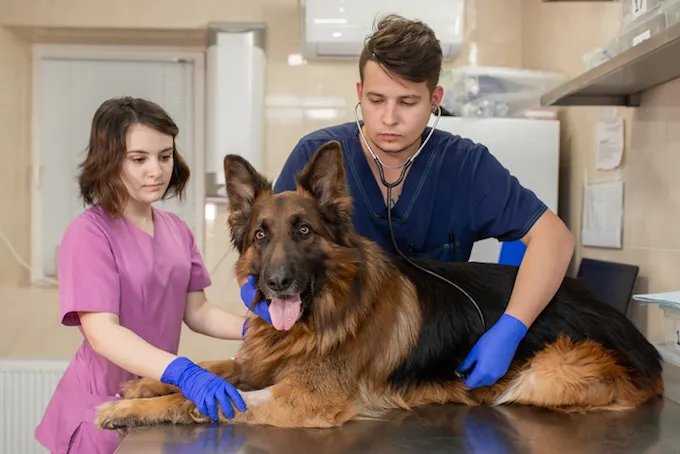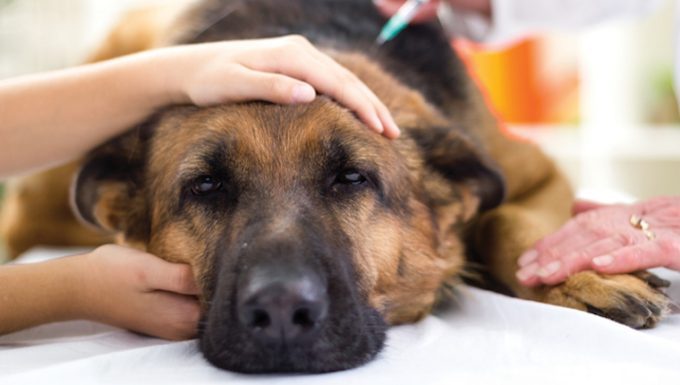Kidney cancer in dogs can affect one or both of the kidneys. Unfortunately, treatment for the condition usually means removing a kidney.
Sadly, the condition affects middle-aged and older dogs the most.
Technically, the condition is also known as renal cancer.
If you see the signs of the condition in your dog, then get to a veterinarian for a proper diagnosis and treatment.
Here’s what you should know about the symptoms, causes, and treatments for the condition.
Symptoms of Kidney Cancer in Dogs
The condition produces a range of general symptoms. For instance, some of the most common symptoms include:
- Loss of appetite
- Stomach pain
- Vomiting
- Weight loss
- Becoming lethargic
- Pee with blood in it
- Nausea
- Depression
- Peeing a lot
Causes of Kidney Cancer in Dogs

The cause of the condition is unfortunately unknown. However, middle-aged and older dogs suffer from the condition more than young pups. Additionally, some German Shepherds can be more predisposed to developing it.
Treatments for Kidney Cancer in Dogs
Firstly, your vet will ask about your dog’s symptoms. Secondly, your vet will ask about your dog’s full medical history. This will include breed-specific problems.
Thirdly, a full physical examination will be carried out. Blood and urine tests will also be taken. The results of the urine tests can help diagnose the condition.
Additionally, X-rays and MRI scans can be used to highlight the condition. In some cases, a biopsy will also be taken to confirm the condition.
Unfortunately, treatment can often require the removal of a kidney. This is a surgical procedure. Your vet can help talk you through the process.
While recovering at home, it is important to provide your dog with a quiet and calm environment. Additionally, pain medication is often prescribed. As always, if your vet prescribes your dog any medicine, make sure to stick to the correct dose and frequency instructions. Also, complete the full course of medicine.
Have you ever cared for a dog who suffered from this condition? How did your vet help your dog recover? Let us know in the comments section below.









